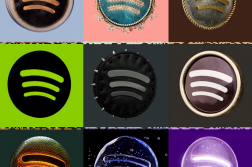As women, long before we recognise our own feminine form, our minds are instilled with the mantra that ‘women’s bodies are something to be embarrassed about’. This seed is planted from a young age, from the hushed conversations about periods and pads and all things ‘feminine’. When I started my period, I felt ashamed when I pulled down my knickers and saw the brown coloured blood while I was going to the toilet, as I’m sure you felt when you read my description of it. But I want you to stop right there – freeze in that feeling you got deep inside when you read those words – the shiver, the thoughts of ‘oh my gosh, why is she describing her intimate parts?‘ And I want to ask you why should it be gross or unclean just because it comes out of a body part we never talk about; just because it comes out of a vagina, doesn’t mean it should be hush-hush.
Biologically, it is the same as a bleeding knee when your child falls over, or a scratch on your forehead when you walk into an open cupboard, except, actually, more natural and habitual. And, to be honest, something to be celebrated. Every female’s body ovulates. Get over it. Not only that, but we should recognise what an amazing thing it is that a body is able to grow another human inside of it for 9 months. In order to do this, it needs to shed the uterus lining so we can house a baby, which causes bleeding. Women are literally bleeding internally in order to carry on the human race, and to make sure each child is safe. Personally, I don’t see how that should be hush-hush, shameful or embarrassing.
In the beginning of the 19th century, women were considered as the ‘angels of the house’, this beautiful, pristine, wonderful angel who looks after the family and should never lift a finger or work outside of the confines of the house. This is because they were so perfect, so idealistic, that they were to be appreciated and treated as a Queen. In a way, this is the type of celebration I am after (but in a less patriarchal, repressed format, obviously). Yes, when I think of the way women’s lives used to be throughout history, we have come a long way. But, in other ways, we haven’t. The Bible and the Quran preach that a woman should not attend church or mosque if they are bleeding, as they are considered ‘unpure’. These are the rules people used to live by, and, although people’s interpretations of these Holy Books aren’t taken as literally in modern times, in some ways, these beliefs stuck.
There is shame surrounding periods, wherever we look. In a supermarket, for example, if someone shouted down the aisle, “Oh, I forgot the tampons, Bob, can you grab me a box?”, there would be disgusted looks, silences, and awkward shuffles of feet from both genders. Talking about periods is simply not in our everyday language, but periods are a part of everyday life. Nobody would even exist to be in the supermarket if women didn’t bleed.
What is equally as integral as women celebrating their own femininity is men being more educated about it too. All the men I have encountered through my life have taken it to be a hush-hush subject, going red when conversations arise, or telling girls they are disgusting- “ewww” ing them out of the room – when they go to the toilet to change their pad. During school, if a girl stood up for something she believed in and spoke back (I refuse to use the word ‘bossy’ for strong women who speak their mind) they were automatically ‘on their blob’. I refuse to let periods be used to demean women, or to encourage, facilitate and fuel patriarchal attitudes any longer. As a feminist, as we all should be (I explain why here), I want to remind you all that both genders are equal. So, the next time you grimace at the dreaded word, remember that the bodies you are grimacing at can house a human of inside them for 9 months, so, theoretically, it puts women slightly ahead on the equality ladder.



